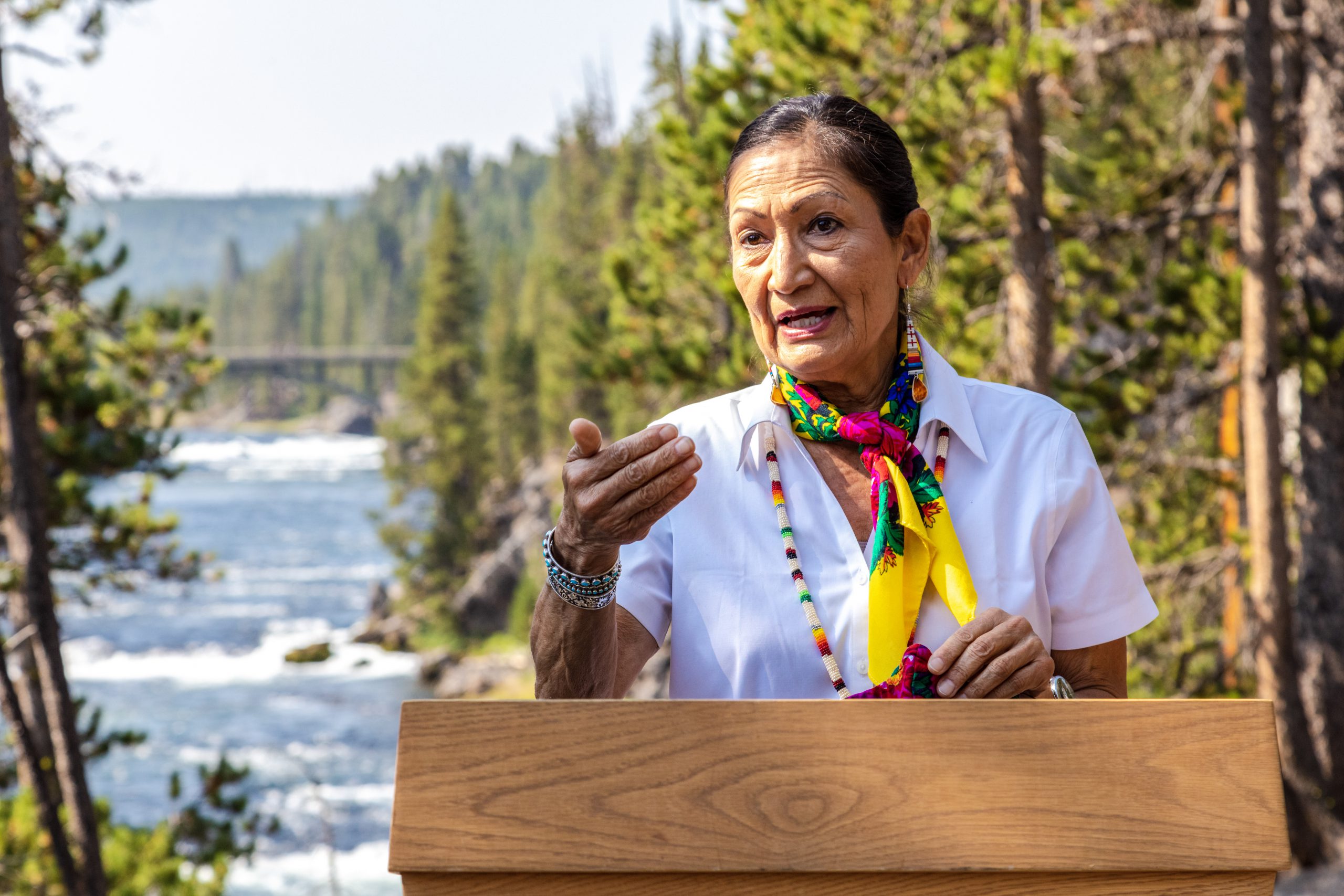
New Biden order focuses on U.S.’s missing or murdered Indigenous women crisis
The Departments of Justice and Homeland Security will be tasked with creating a tribal centered law enforcement response to the issue.
President Joe Biden is expected to sign an executive order on Monday, Nov. 15 addressing what the administration calls an “epidemic” of missing or murdered Indigenous people.
“We have to continue to stand up for the dignity and sovereignty of tribal nations," Biden said at the White House Tribal Leaders Summit, the first since 2016.
This morning, @FLOTUS and I are participating in a Tribal Nations Summit here at the White House. I look forward to announcing steps to improve public safety and justice for Native Americans, protect Tribal lands, treaty rights, and sacred places.
— President Biden (@POTUS) November 15, 2021
It directs the Department of Justice, and Interior and Homeland Security with addressing and creating a strategy for specific law enforcement issues and providing tribal nations with support in implementing tribally centered responses to combat violence against Native communities.
The Department of Health and Human Services will also be tasked with developing plans for violence prevention and victim support.
In April, Interior Secretary Deb Haaland, the country’s first Native American Cabinet Secretary, launched a unity within her department’s Bureau of Indian Affairs intended to tackle this crisis.
Thousands of Indigenous women and girls have been reported killed or missing for years, but families and advocates say their cases are usually disregarded by law enforcement, which has led them to shine light on the issue through social media campaigns, protests and marches.
According to the National Crime Information Center, about 1,500 American Indian and Alaska Native missing persons have been recorded across the United States, and 2,700 homicide cases have been reported to the federal government’s Uniform Crime Reporting Program.
The Justice Department has reported that on certain reservations, Native American women are murdered at a rate more than 10 times the national average.
President Biden signs an executive order to address violence against Native Americans.
— CSPAN (@cspan) November 15, 2021
"I'm proud to sign it. It's long overdue." pic.twitter.com/nrJ4UMyb1a
“A lot of these cases arise in Indian country or involve people who live in Indian country, but they might originate outside of tribal lands, and the patchwork of land holdings and jurisdictions across the country makes it paramount that federal, tribal and local law enforcement agencies coordinate our efforts together,” a White House official told NBC News.
RELATED CONTENT
During his term, Biden has reached out to America’s Indigenous communities, becoming the first President to recognize Indigenous People’s Day last month, and restoring protections to the Bears Ears and Grand Staircase-Escalante National Monuments.
According to a White House fact sheet, Biden will also make efforts at Monday’s summit to expand protections for the Greater Chaco Landscape in New Mexico, a region of major cultural, spiritual and historical significance to many Pueblos and Indian tribes. The Greater Chaco Landscape was designated a UNESCO World Heritage Site in 1987.
“Chaco Canyon is a sacred place that holds deep meaning for the Indigenous peoples whose ancestors lived, worked, and thrived in that high desert community. Now is the time to consider more enduring protections for the living landscape that is Chaco, so that we can pass on this rich cultural legacy to future generations,” said Haaland.
The progress made in Indian Country is because of President Biden.
— Secretary Deb Haaland (@SecDebHaaland) November 15, 2021
I hope that you were able to view @POTUS’ opening remarks at today’s Tribal Nations Summit.
Watch the rest of the summit: https://t.co/MzbFdAUojI
Additionally, the administration is set to announce a memorandum of understanding from 18 federal agencies with a goal of protecting Tribal Treaty Rights.
Under the memorandum, representatives from several departments, including Agriculture, Defense, Commerce, Education, the Environmental Protection Agency and the Council on Historic Preservation will issue reports over the next 180 days to strengthen treaty protections.
As part of that agreement, the administration announced a partnership with Oklahoma State University to compile, digitize, and index Tribal treaties, with a beta version of the database to be unveiled Monday.











LEAVE A COMMENT: